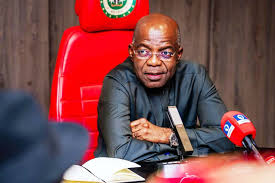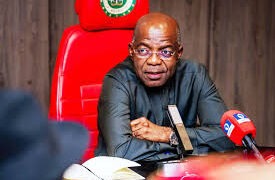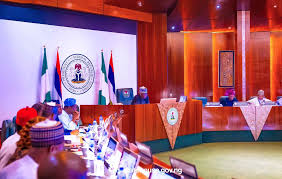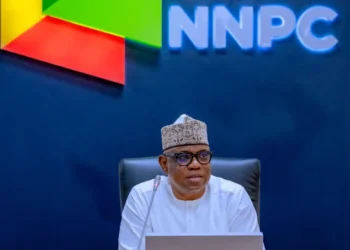The Ogun State local government elections held on Saturday faced significant challenges, including low voter turnout and delayed voting, leading to widespread concerns about the credibility and organization of the poll.
Scheduled to begin at 8 a.m., the elections across various local government areas did not commence as planned due to logistical issues. Reports from the News Agency of Nigeria (NAN) indicated that by 11 a.m., several key polling units in Oke-Ilewo and Adigbe (Abeokuta-South Local Government Area), as well as Ibafo and Mowe (Obafemi-Owode Local Government Area), were largely deserted. Electoral materials and officials reportedly departed late from several local government headquarters, including Ado-Odo/Ota, Abeokuta-North, and Sagamu, causing significant delays.
Speaking to NAN, a resident in Abeokuta-South, Johnson, expressed his disappointment with the poor organization of the elections. “I am not surprised by the low turnout,” he said. “Local government elections are often seen as lacking transparency, and many people believe the results are predetermined.
This discourages voters from coming out.”
In Ikenne Local Government Area, voting started around 10:30 a.m. at select polling units, including Ward 3, Iperu, where Governor Dapo Abiodun was expected to cast his vote. Despite the commencement of voting, turnout remained low. A polling official who requested anonymity noted, “We experienced delays in the arrival ofmaterials, which affected our ability to start on time. The turnout has also been much lower than anticipated, even after we opened the polls.”
Residents who managed to make it to the polling stations voiced their frustrations over the delays. Mrs. Funmi Adeola, a voter in Mowe, remarked, “I arrived here at 8 a.m. as instructed, but we had to wait for hours before voting materials were delivered. Many people left out of frustration, and only a few of us stayed back.”
The Ogun State Independent Electoral Commission (OGSIEC), responsible for conducting the election, has yet to release an official statement regarding the logistical setbacks and the observed low voter turnout. Election observers, however, criticized the late start, attributing it to poor planning and inadequate distribution of election materials.
“This level of disorganization is disappointing, especially considering the importance of local government elections in grassroots democracy,” said an observer from a local civic organization, who wished to remain unnamed. “The delayed start not only disrupts the process but also contributes to voter apathy.”
Security agencies were deployed across the state to maintain order during the voting exercise. The Ogun State Traffic Management Agency strictly enforced movement restrictions, setting up roadblocks at various points to control traffic flow. Additionally, a heavy presence of police and other security personnel was observed at major streets and polling units to prevent any disturbances.
Despite the measures put in place, the low turnout has raised questions about the public’s confidence in the local electoral process. Voter apathy has been a recurring issue in local government elections, often linked to perceptions of electoral fraud and the belief that these elections do not significantly impact their daily lives.
Political analysts noted that the poor turnout could undermine the legitimacy of the elected officials. “When voter participation is this low, it affects the mandate of those elected,” said Dr. Adekunle Adedeji, a political analyst from the University of Lagos. “The representatives might find it challenging to claim they have a true mandate from the people, which can affect their ability to govern effectively.”
As the election progressed, some polling units reported a gradual increase in activity, but the overall participation remained minimal. Observers highlighted the need for improved planning in future elections to address logistical issues and restore public confidence. “The Independent National Electoral Commission and OGSIEC must work together to ensure that election materials are distributed on time and that voters are adequately informed and engaged,” Dr. Adedeji added.
Reflecting on the day’s events, a local government official in Abeokuta-North, who preferred not to be named, commented, “We expected a better turnout and smoother process. The delays were unfortunate, but we hope to learn from this experience and make necessary adjustments in future elections.”
The conclusion of the elections has left many voters and stakeholders questioning the effectiveness of the current local government electoral framework in Ogun State. Calls for reforms have intensified, with suggestions for better logistical planning, increased voter education, and more transparent processes to combat voter apathy.
“The low turnout we witnessed today is a clear indication that citizens have lost faith in local government elections,” said Mr. Tunde Balogun, a community leader in Sagamu. “The authorities need to do more to engage the electorate and ensure that their votes count in these elections.”
As the results from the Saturday polls are expected to be announced in the coming days, the focus will shift to how the newly elected officials plan to address the challenges observed during the exercise and work towards rebuilding public trust in the local governance system.





































